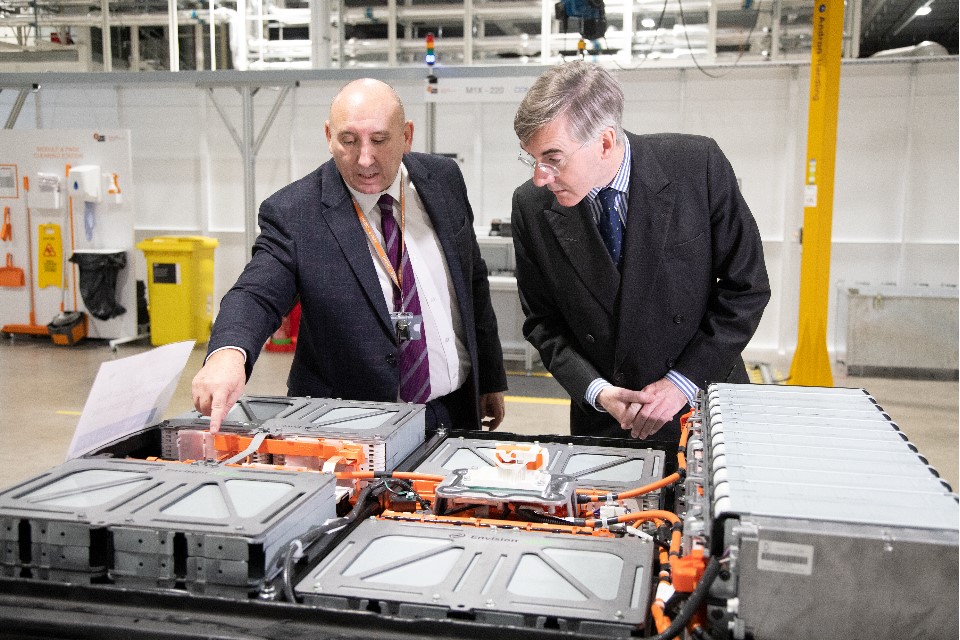
A competitive funding initiative launched by the UK government to support battery research and development will make £211 million (US$235 million) available over the next three years.
The money will be targeted at advancing technology development and capabilities to scale-up manufacturing for batteries that can be used in applications like stationary energy storage and electric vehicles (EVs).
Enjoy 12 months of exclusive analysis
- Regular insight and analysis of the industry’s biggest developments
- In-depth interviews with the industry’s leading figures
- Annual digital subscription to the PV Tech Power journal
- Discounts on Solar Media’s portfolio of events, in-person and virtual
The UK government’s department for Business, Energy and Industrial Strategy (BEIS) launched the Faraday Challenge in 2017, named after 18th Century scientist and inventor Michael Faraday, who made key contributions to the understanding of electrochemistry.
Administered by groups including non-departmental public body UK Research & Innovation (UKRI) and research institution The Faraday Institute, BEIS claimed that a total £541 million has been put into the initiative since its founding.
A UKRI document with details of some of the 140 projects funded to date is available here from the body’s website, published in September 2021.
They include a project to explore the feasibility of direct extraction of lithium from geothermal brine in Cornwall, southwest England, thermal control and thermal runaway suppression systems for lithium batteries, scaling up advanced battery materials and many more.
BEIS said the direct funding from the Faraday Challenge has to date stimulated a further £400 million in private investment. It has also enabled the Faraday Institution to team up with 500 researchers from 25 universities, and various spin-out companies have been created from research projects.
One example of that is specialist battery insurance technology (insurtech) company Altelium. Altelium claims its data-driven approach to battery warranties can help de-risk investments. Co-founder Charlie Grimston recently wrote an article for Solar Media’s quarterly journal PV Tech Power, calling data-driven insurance for batteries an “unsung hero of the energy transition”.
The latest funding will be disbursed between this year and 2025. Longer-term, BEIS believes its support can foster the creation of 100,000 related jobs in both battery gigafactories and the wider supply chain by 2040.
“Safe and powerful batteries are central to our plans to grow the industries of the future,” UK business secretary Jacob Rees-Mogg, who heads up BEIS, said.
“From our world leading renewables industry to our growing electric vehicle sector, secure supplies of batteries are key to delivering jobs and prosperity.”
It mirrors the approach taken by the US government to some extent. Earlier this week US president Joe Biden announced nearly three billion dollars of funding awards to 20 companies, unlocked by his Bipartisan Infrastructure Law legislation.
From a technology perspective, the Faraday Challenge’s R&D funding is targeted at lowering the weight of batteries as well as their cost, increasing energy density and power output, as well as making them as reliable and recyclable as possible.
From a business point of view, it wants to further collaboration leading to innovation in the UK battery sector, developing the network of companies and skilled workers required.
Additionally, through the £130 million UK Battery Industrialisation Centre (UKBIC), which is the national battery manufacturing development facility, it will promote battery manufacturing scale-up and skilling up of the workforce.
The announcement comes only a couple of days after a report by the Financial Times newspaper that one gigafactory hopeful, Britishvolt, is in financial difficulty and seeking extra funding urgently.
However, Ian Levy, a local politician in the northeast England region of Northumberland where Britishvolt wants to build its factory, was quoted by regional press outlet ChronicleLive as saying the company’s management is “pursuing several opportunities” that would help them continue with plans, a day after the Financial Times report.






